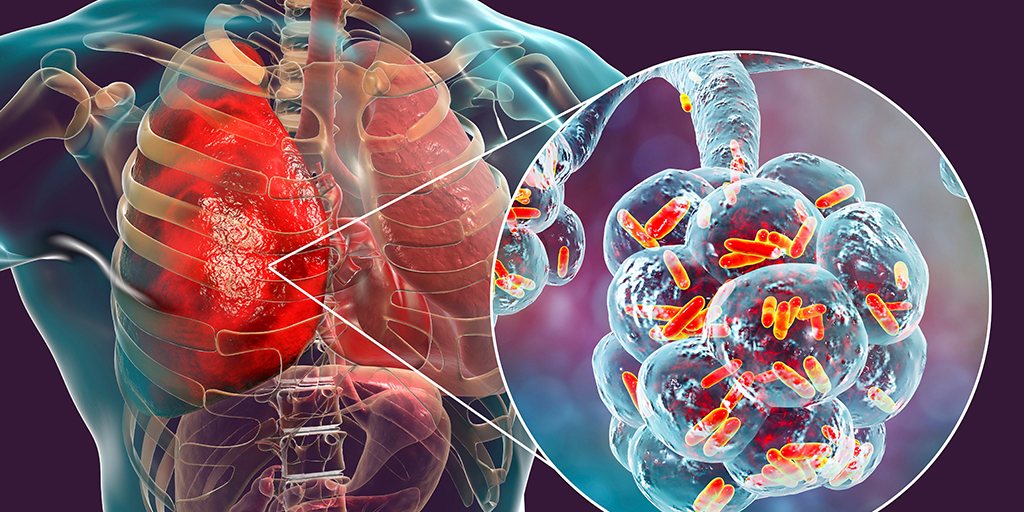Hormonal imbalances and endocrine disorders can disrupt many vital processes in the body, such as metabolism, energy levels, growth, mood, reproductive health, and blood sugar levels. While some of these problems are mild and manageable, others can lead to serious complications, if left untreated. That’s why, when it comes to hormonal imbalances and endocrine disorders, prompt evaluation by an endocrinologist is critical to avoid long-term damage and serious health risks.
At Graphic Era Hospital Dehradun, our endocrinology team is dedicated to identifying and treating a wide range of hormone-related conditions with precision and compassion. From managing diabetes and thyroid disorders to addressing PCOS and other endocrine concerns, each patient receives a personalised care plan designed to stabilise hormone levels, ease symptoms, and support long-term health through evidence-based treatment and regular monitoring.
Doctors Available
What Does an Endocrinologist Do?
An endocrinologist is a medical specialist who diagnoses and treats conditions related to hormone-producing glands in the body. These glands, which include the thyroid, pancreas, adrenal glands, pituitary gland, and reproductive organs, play a vital role in regulating essential functions such as metabolism, growth, mood, and reproduction.
Endocrinologists are trained to identify hormonal imbalances and manage chronic endocrine disorders through medication, lifestyle guidance, and ongoing monitoring. At Graphic Era Hospital Dehradun, our endocrinologists collaborate with diabetes educators, dietitians, gynaecologists, and other specialists to provide holistic care that addresses both the root cause and the long-term effects of hormone-related conditions.
Why Choose Graphic Era Hospital for Endocrine Care

When to Consult an Endocrinologist
Hormonal imbalances can show up in subtle and unexpected ways. If any of the following symptoms sound familiar, consulting an endocrinologist can help identify the root cause and guide appropriate treatment.
- Unexplained Weight Changes
Sudden weight gain or loss, without significant lifestyle changes, may be linked to conditions like thyroid dysfunction or insulin resistance. An endocrinologist can evaluate these shifts and recommend targeted care.
- Persistent Fatigue
Ongoing tiredness, even after adequate rest, may be caused by hormonal imbalances affecting the thyroid, adrenal glands, or glucose metabolism. A specialist consultation can help determine the next steps.
- Irregular or Missed Periods
Changes in menstrual patterns may point to underlying conditions such as PCOS or thyroid disorders. It's important to speak with an endocrinologist to assess hormonal health and reproductive function.
- Increased Thirst and Frequent Urination
These symptoms could indicate high blood sugar levels or diabetes. Early evaluation by an endocrinologist is essential to prevent complications and begin effective management.
- Mood Swings, Anxiety, or Depression
Hormonal imbalances often affect mental well-being. If mood changes are persistent or worsening, an endocrinologist can help explore whether hormones are contributing factors.
- Hair Loss, Acne, or Skin Changes
Unexplained changes in skin or hair may signal endocrine disorders such as PCOS or thyroid dysfunction. Consulting an endocrinologist can clarify the cause and lead to appropriate care.
- Delayed Growth or Early Puberty in Children
Unusual growth patterns or early signs of puberty should be assessed by a pediatric endocrinologist to ensure timely diagnosis and intervention.
- Family History of Endocrine Disorders
A close family history of conditions like diabetes or thyroid disease may increase personal risk. Proactive consultation with an endocrinologist can help with early detection and prevention.
Conditions Our Endocrinology Team Treats at Graphic Era Hospital
At Graphic Era Hospital, the endocrinology department is equipped to diagnose and manage a wide range of hormone-related disorders that affect various organs and systems. With a patient-centric approach and access to advanced diagnostics, our team offers evidence-based care for the following conditions:
- Diabetes Mellitus
From Type 1 and Type 2 diabetes to gestational diabetes, our specialists focus on individualized treatment plans involving medication, lifestyle modification, and continuous monitoring to prevent complications.
- Obesity Management and Treatment
Our specialists address obesity through personalised treatment plans that include dietary counselling, physical activity recommendations, behavioural therapy, and, when appropriate, medical or surgical interventions, ensuring long-term health improvement and reduced risk of associated conditions.
- Thyroid Disorders
Including hypothyroidism, hyperthyroidism, thyroid nodules, and autoimmune thyroid conditions like Hashimoto’s and Graves’ disease. We offer accurate diagnosis, medication management, and ongoing monitoring.
- Polycystic Ovary Syndrome (PCOS)
A common endocrine condition in women that can affect fertility, weight, skin, and menstrual cycles. Our team addresses PCOS with tailored lifestyle advice, hormonal therapy, and long-term support.
- Osteoporosis and Metabolic Bone Disease
We treat bone loss conditions by identifying hormonal or nutritional causes, and prescribing medications or supplements to reduce fracture risk and improve bone density.
- Adrenal Disorders
Conditions like Addison’s disease, Cushing’s syndrome, or adrenal tumors can disrupt stress response, blood pressure, and metabolism. Timely diagnosis and targeted hormone therapy are essential.
- Pituitary Gland Disorders
These include pituitary tumors, prolactinoma, and growth hormone imbalances. We provide comprehensive hormonal evaluations and coordinate care with neurosurgery if required.
- Menstrual and Fertility Issues
Hormonal imbalances can cause irregular cycles, amenorrhea, or infertility. Our endocrinologists work closely with gynaecology specialists to provide integrated care.
- Menopause and Hormone Replacement Therapy
For women experiencing early or symptomatic menopause, we offer evaluation and safe, personalized hormone replacement options to manage symptoms and maintain long-term health.
- Pediatric Endocrine Disorders
Including growth hormone deficiency, early or delayed puberty, childhood obesity, and congenital hormonal conditions. Specialized care is provided in coordination with pediatric teams.
- Lipid and Cholesterol Disorders
Endocrinologists also manage dyslipidemia (abnormal cholesterol levels), especially when linked to insulin resistance or metabolic syndrome.
Treatments and Services Offered by Our Endocrinology Team
At Graphic Era Hospital, our endocrinology team is committed to providing comprehensive, personalized treatment options to address a wide range of endocrine and hormonal disorders. Utilizing the latest advancements in medical science, we offer the following services:
- Diabetes Management
Through personalized care plans, our specialists help manage blood sugar levels with medications, insulin therapy, lifestyle changes, and continuous monitoring. We also provide patient education on managing diabetes through diet and exercise, aiming to reduce complications and improve quality of life.
- Pharmacological and non pharmacological management of Obesity
Our comprehensive approach to obesity includes non-pharmacological methods such as personalised dietary plans, structured exercise routines, and behavioural therapy. When lifestyle changes alone are insufficient, we offer pharmacological options like appetite suppressants or metabolic enhancers, carefully selected based on individual health profiles to ensure safe and effective weight management.
- Thyroid Function Tests and Treatment
We offer accurate thyroid function tests, including TSH, T3, T4, and antibodies, to diagnose thyroid disorders. Treatment options include medications, lifestyle adjustments, and in some cases, radioiodine therapy or surgery for thyroid nodules or cancers.
- Hormone Replacement Therapy (HRT)
For conditions like menopause, hypothyroidism, and hormone imbalances, we provide HRT to restore hormonal balance and alleviate symptoms such as hot flashes, fatigue, and mood swings.
- PCOS Management
We offer a combination of lifestyle modifications, medication to regulate periods, reduce symptoms like acne and excessive hair growth, and assist with fertility. Our team also provides support for weight management and metabolic health.
- Osteoporosis Treatment
Through bone mineral density testing, our specialists assess bone health and prescribe medications like bisphosphonates or hormone therapy to increase bone density and reduce fracture risk.
- Adrenal Disorder Management
For conditions such as Addison’s disease or Cushing’s syndrome, our team provides hormonal replacement therapies and targeted treatments to restore balance in the body’s stress response and metabolic functions.
- Pediatric Endocrinology Care
We manage pediatric endocrine issues like delayed or early puberty, growth concerns, and congenital disorders with the utmost care, offering hormone therapies and growth stimulants when necessary.
- Lifestyle Modification and Education
A core part of our approach is educating patients about nutrition, exercise, and stress management. We offer ongoing counseling to manage weight, improve energy levels, and maintain a healthy lifestyle for long-term wellness.
- Endocrine Surgery
In cases where surgery is required, such as thyroidectomy or adrenal gland surgery, we collaborate with top surgeons to ensure safe, effective outcomes.
- Endocrine Lab Services
On-site laboratory services for hormone level testing, thyroid ultrasounds, and other specialised tests help expedite diagnosis and treatment, ensuring timely intervention.
- Telemedicine Consultations
For patient convenience, we offer virtual consultations, enabling easy access to expert care from the comfort of your home, especially for follow-up visits or ongoing treatment plans.
Top Procedures
- Adrenalectomy
- Parathyroidectomy
- Thyroidectomy
- Thyroid Lobectomy
- Total Pancreatectomy
Endocrinologist Conditions Treated at Graphic Era Hospital
Other Specialities
Patient Stories
Blog
Frequently Asked Questions
What are the common symptoms of hormone imbalances?
Common symptoms of hormonal imbalances include unexplained weight changes, fatigue, mood swings, irregular menstrual cycles, excessive thirst or urination, and changes in skin or hair. If you experience any of these symptoms persistently, it’s important to consult an endocrinologist for further evaluation.
How are endocrine disorders diagnosed?
Endocrine disorders are typically diagnosed through a combination of medical history, physical examination, blood tests to measure hormone levels, and imaging tests like ultrasounds or CT scans. Our endocrinologists use these tools to pinpoint the exact cause of symptoms and determine the most effective treatment plan.
Do all hormone imbalances require medication?
Not all hormone imbalances require medication. Some conditions can be managed with lifestyle changes, diet adjustments, or weight management. However, more severe cases may require hormone replacement therapy or other medications to restore balance and prevent complications.
How is diabetes treated by an endocrinologist?
An endocrinologist helps manage diabetes through a combination of lifestyle changes, medication (such as insulin or oral medications), and monitoring blood glucose levels. They also provide guidance on diet, exercise, and self-care to maintain stable blood sugar levels and prevent complications.
Can thyroid problems be cured?
While some thyroid issues, like hypothyroidism or hyperthyroidism, may not be curable, they can be effectively managed with the right treatment, including medication or surgery. Our team works closely with patients to provide the best care options and manage symptoms long term.
How can I prevent hormone imbalances?
Preventing hormone imbalances often involves maintaining a healthy lifestyle, including a balanced diet, regular exercise, adequate sleep, and managing stress. For some individuals, routine monitoring and early intervention can help manage hormone levels before they cause significant issues.
Is weight gain or loss always linked to a hormonal problem?
Weight changes can sometimes be linked to hormone imbalances, but they can also be caused by other factors such as diet, exercise, and medical conditions. If weight changes are unexplained or persistent, it’s important to consult an endocrinologist for an accurate diagnosis.
Are endocrine disorders genetic?
Some endocrine disorders, like thyroid conditions or polycystic ovary syndrome (PCOS), may have a genetic component. Family history can play a role in an individual’s risk, but lifestyle and environmental factors also contribute to the development of these conditions.
What should I expect during my first consultation with an endocrinologist?
During your first consultation, the endocrinologist will discuss your medical history, symptoms, and any family history of endocrine conditions. They may order tests to assess your hormone levels and recommend a personalized treatment plan. Expect a thorough discussion and answers to any questions you may have about your health.

















